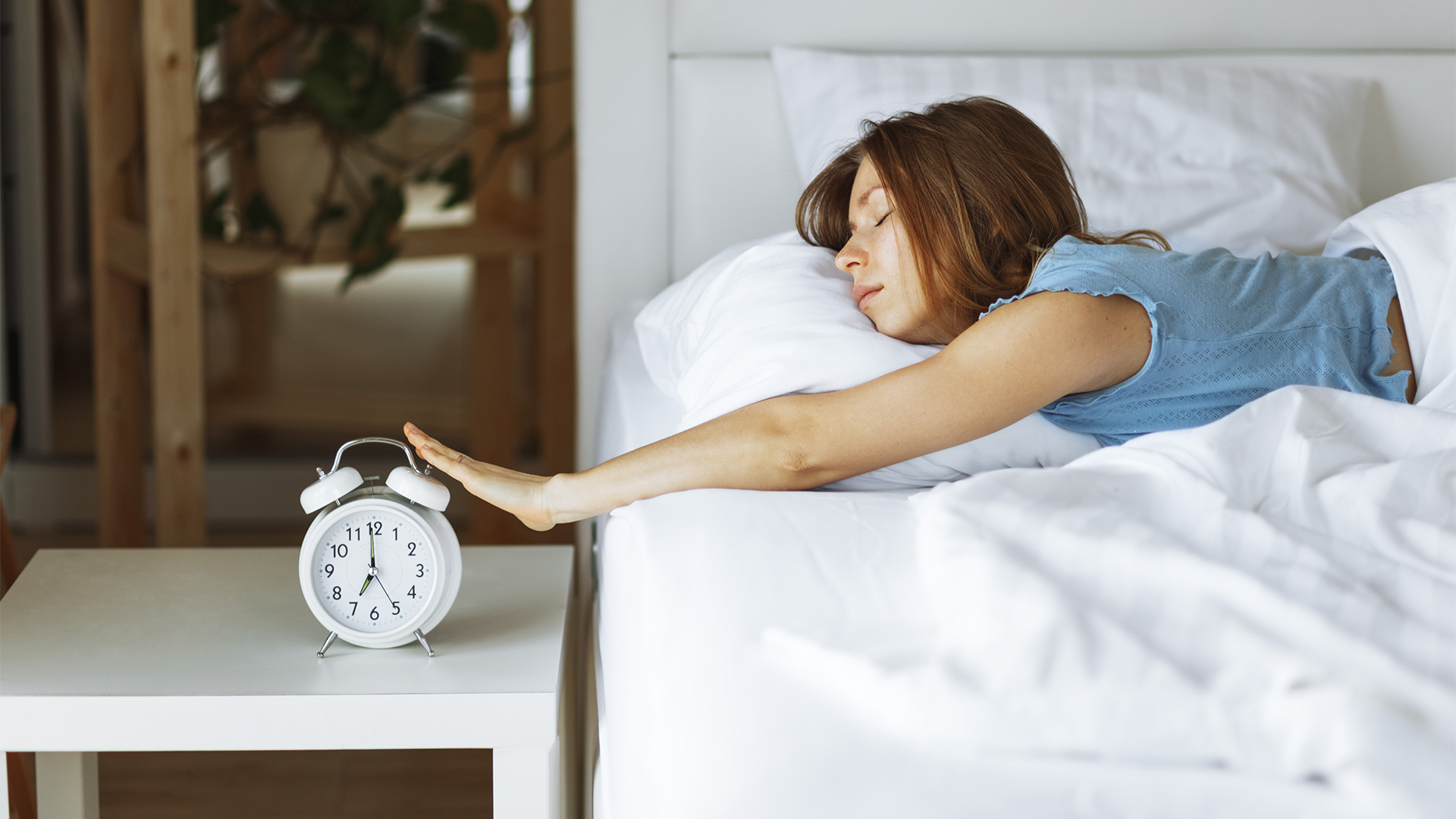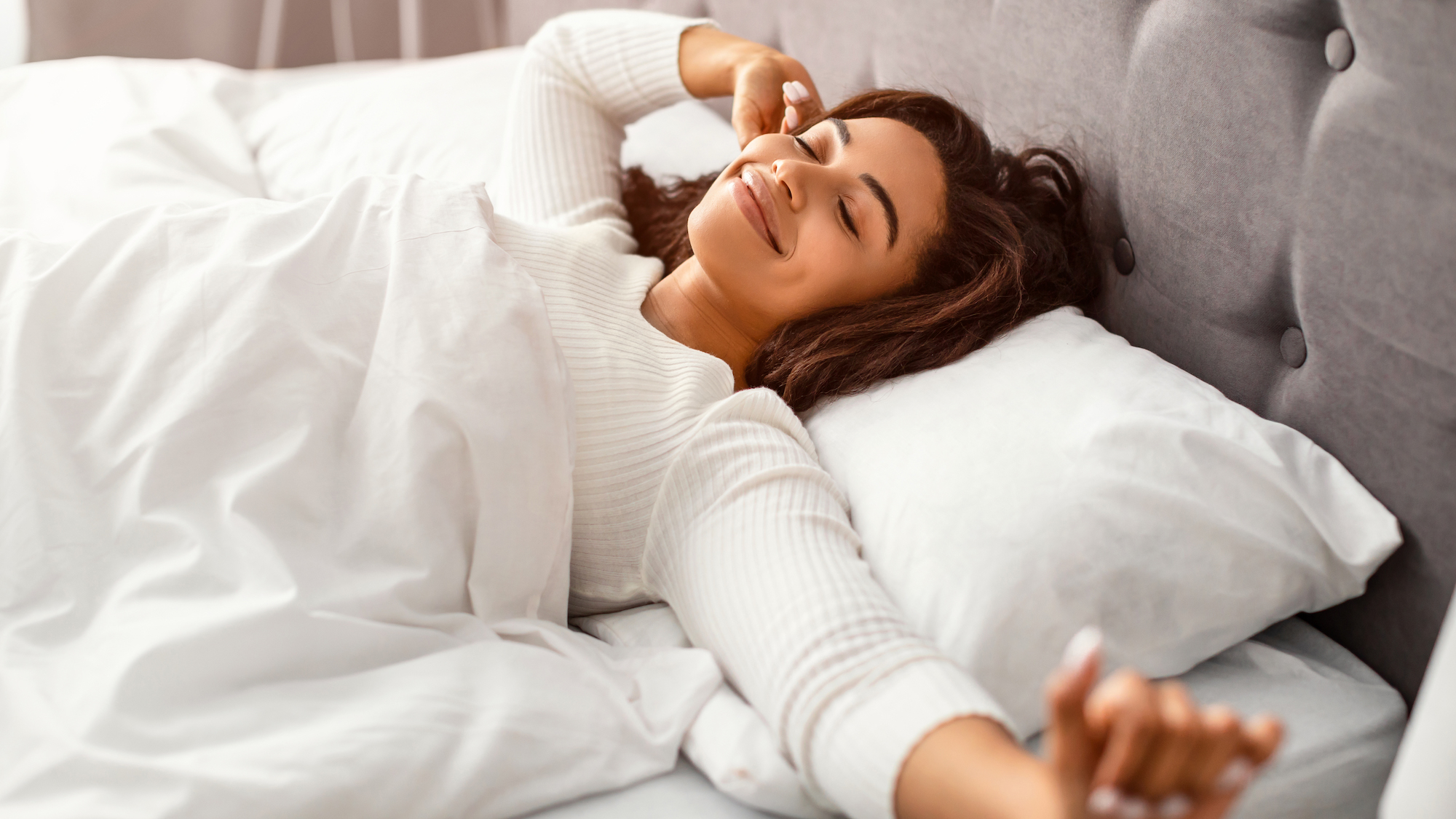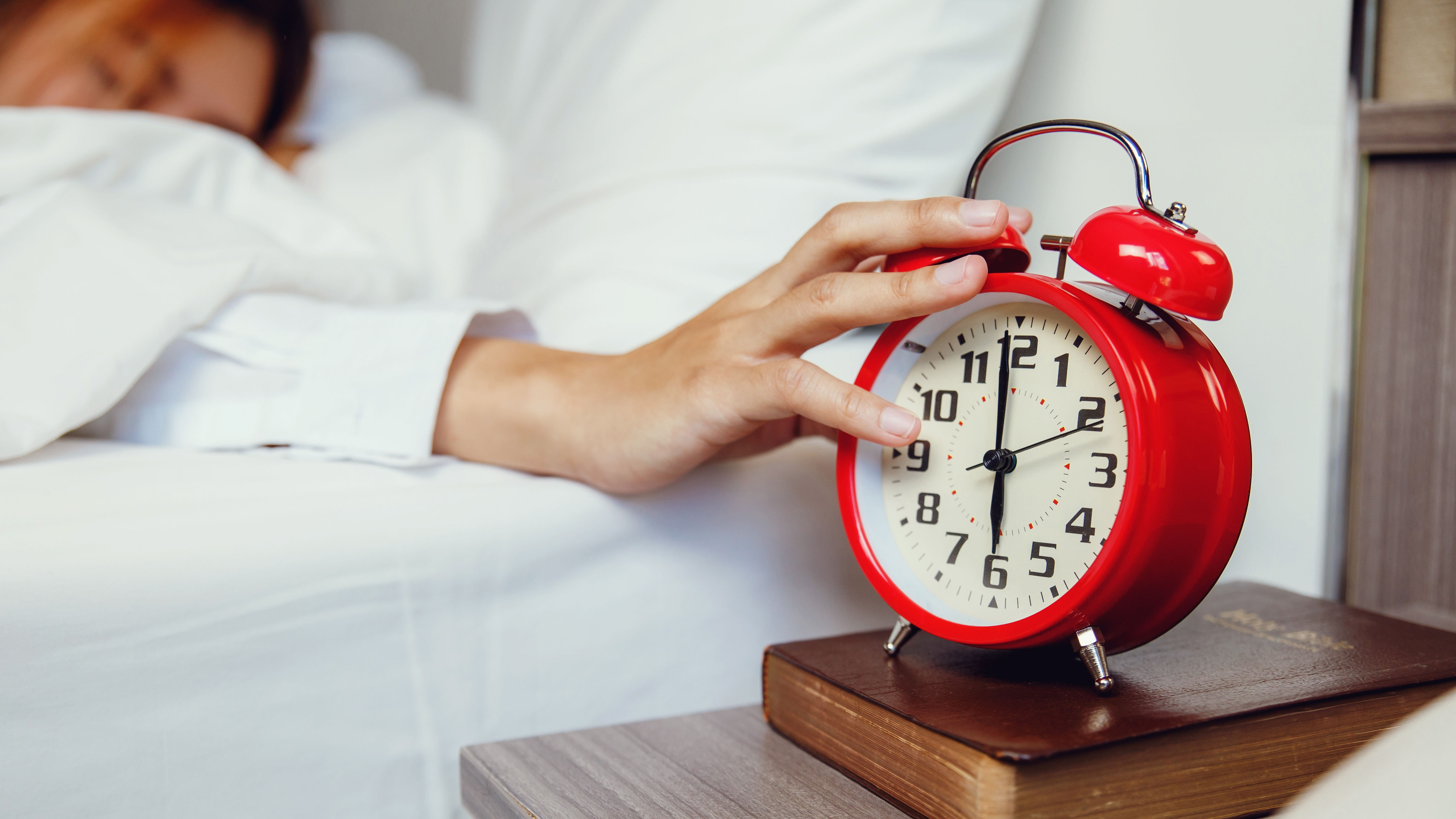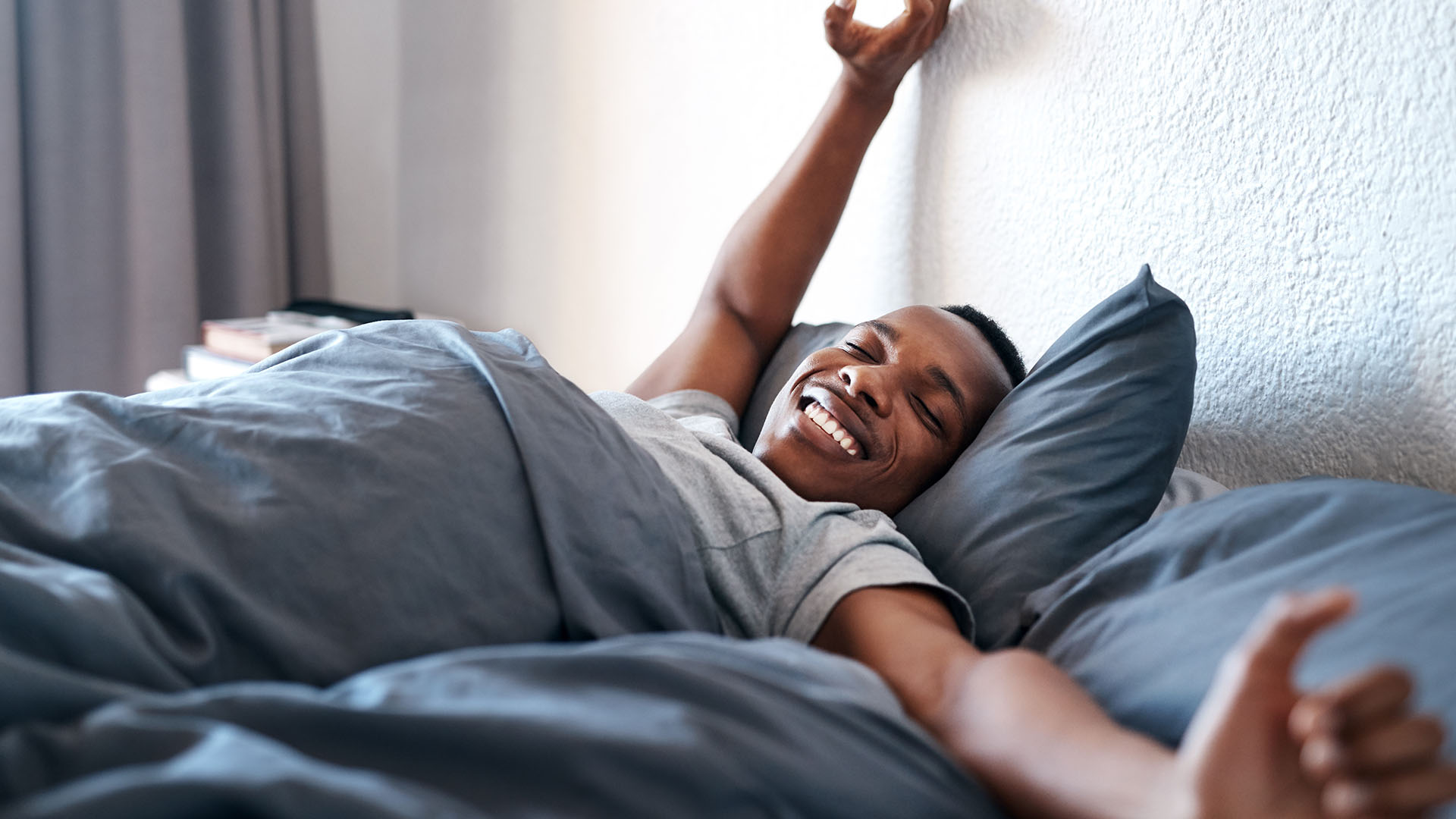Sleep expert says we should ditch the alarm — here’s why and how to wake up naturally
Dr Hana Patel explains why alarm-free mornings might be best for your sleep overall

No one likes being blasted awake by an alarm clock, but turning off the alarm entirely sounds scary. After all, without an alarm we'd end up sleeping in and spending all day in bed, right? But according to one expert, ditching the alarm might actually be the healthiest thing for your sleep overall.
“Even subtle inconsistencies in sleep, such as waking early with an alarm clock on workdays versus waking naturally on non-workdays, can disrupt our biological rhythms,” explains Dr Hana Patel, a registered GP and sleep expert at Time4Sleep. Here we explore why ditching the alarm is worth the effort, plus we'll cover some helpful tips to get started with your alarm-free mornings.
For other ways to improve your sleep quality, take a look at your mattress. If yours isn't as comfortable or supportive as it was, it could be time to buy something new. Our guide to this year’s best mattresses for all sleepers contains our top recommendations for different budgets.
- Read more: I used a sunrise alarm clock for a week and it didn’t wake me up once — here’s why I'll still use it
Why ditch the alarm each morning?
An alarm clock is a standard part of the morning routine for most of us, charged with waking us up when we’d really rather be in bed. But an alarm clock is, by definition, an alarming way to get up in the morning, as well as a disruptor to our natural rhythms.
As Dr Patel explains, getting rid of the alarm clock results in more pleasant mornings. “This small adjustment can prevent the conflicting effects of abrupt awakenings and promote a smoother transition in your body's internal clock.”
In addition, those weekday morning alarms are probably getting you up significantly earlier than your natural weekend wake-ups. This results in a feeling known as social jet lag, which is when your body clock almost switches from one timezone to another at the weekend, resulting in a groggy, fatigued feeling.

“Research has shown that ‘social jet lag’ – the misalignment of our internal body clock due to shifts in sleep patterns between weekdays and free days – has been linked to variations in diet quality, habits, inflammation, and gut microbiome composition,” explains Dr Patel.
Get instant access to breaking news, the hottest reviews, great deals and helpful tips.
“Whilst [ditching the alarm] may be difficult if you have early starts during the week, whenever possible allow yourself to wake up naturally without the use of an alarm clock, especially on non-workdays.”
5 tips to waking up without an alarm clock
1. Train your body with a sleep schedule
You probably find you get sleepy and wake up at roughly the same time on days when you have nowhere to be. The problem is, that natural wakeup time might not be the same time you need to get out of bed. Setting a consistent and healthy sleep schedule can help you wake up when you need to, naturally.
“Maintain regular sleep schedules by going to bed and waking up at the same time each day, even on weekends,” advises Dr Patel. “This helps regulate our biological rhythms.” In time, you should find that even if you’re not awake before the alarm, it isn’t dragging you out of deep sleep either.
2. Ditch the alarm on weekends
Many of us have a compelling reason to set an alarm — we need to be up in time for work. Rather than risk a late morning, try starting your alarm free routine on the weekend.

This might not be that much different to your current schedule, but it’s important to follow your natural wakeup by getting up and out of bed. That means no more rolling over for ‘five more minutes’, and avoiding the temptation for an extra thirty minutes propped up on your pillow, scrolling through your phone.
3. Be careful with your light exposure
“Another way you can support your body's natural circadian rhythms is to create an ideal sleep environment”, says Dr Patel. “A healthy sleep space should be dark, quiet, and cool.”
Before bed, cut down on your light exposure. Dim the overhead lights, and put away screens: “the blue light emitted from electronic devices can interfere with the production of sleep-inducing hormones, potentially disrupting your sleep-wake cycle.” When you’re in bed, use blackout blinds or an eye mask to increase darkness.
In the morning, expose yourself to light. It’s summer for many of us, which is a great time to kickstart your earlier mornings as you’re more likely to wake up with the sun. Open the curtains or, on a cloudy morning, turn on the lights.
4. Swap your alarm for a sunrise alarm clock
If going completely alarm free sounds like an intimidating prospect, Dr Patel has a less shocking alternative. “It may be beneficial to use a device such as a sunrise alarm, simulating a natural wake up method.”

Sunrise alarm clocks gently flood the room with light, creating a natural start to the morning. They’re easier to control than the actual sunrise, but not as surprising as an alarm clock, making them a good middle ground for going alarm-free.
5. Make sure you get adequate sleep
Sleep deprivation can sometimes leave you snoozing through your alarm, so if you aren’t getting adequate rest, you’ll struggle to say goodbye to the alarm clock. A consistent schedule is a good step towards falling asleep faster, and Dr Patel has some other tips for getting better rest:
“Try to develop habits that allow your body to prepare itself for bed. Include things that you enjoy and that relax you such as listening to relaxing music, reading or listening to an audio book, or having a cup of caffeine-free tea.”
A comfortable sleep environment is also important for achieving consistent slumber. Frequent mattress sales can help you save on a bed that’s perfect for your sleep style, while our guide to the best pillows can ensure you always have somewhere comfortable to rest your head.

Ruth is an experienced Senior Staff writer at Tom’s Guide, covering all things sleep and mattresses. She writes to help people sleep better, from how-tos to the latest deals to mattress reviews, and has interviewed an array of experts who share her passion. She is also our specialist on memory foam — she’s flown around the world to see memory foam being made — and leads our hotel mattress content. She has a deep interest in the link between sleep and health, and has tried enough mattresses, from Helix to Nectar to Simba, to know the right bed really can make a difference to your wellbeing. Before joining the team at Tom’s Guide, Ruth worked as a sleep and mattress writer for our sister website, TechRadar.
